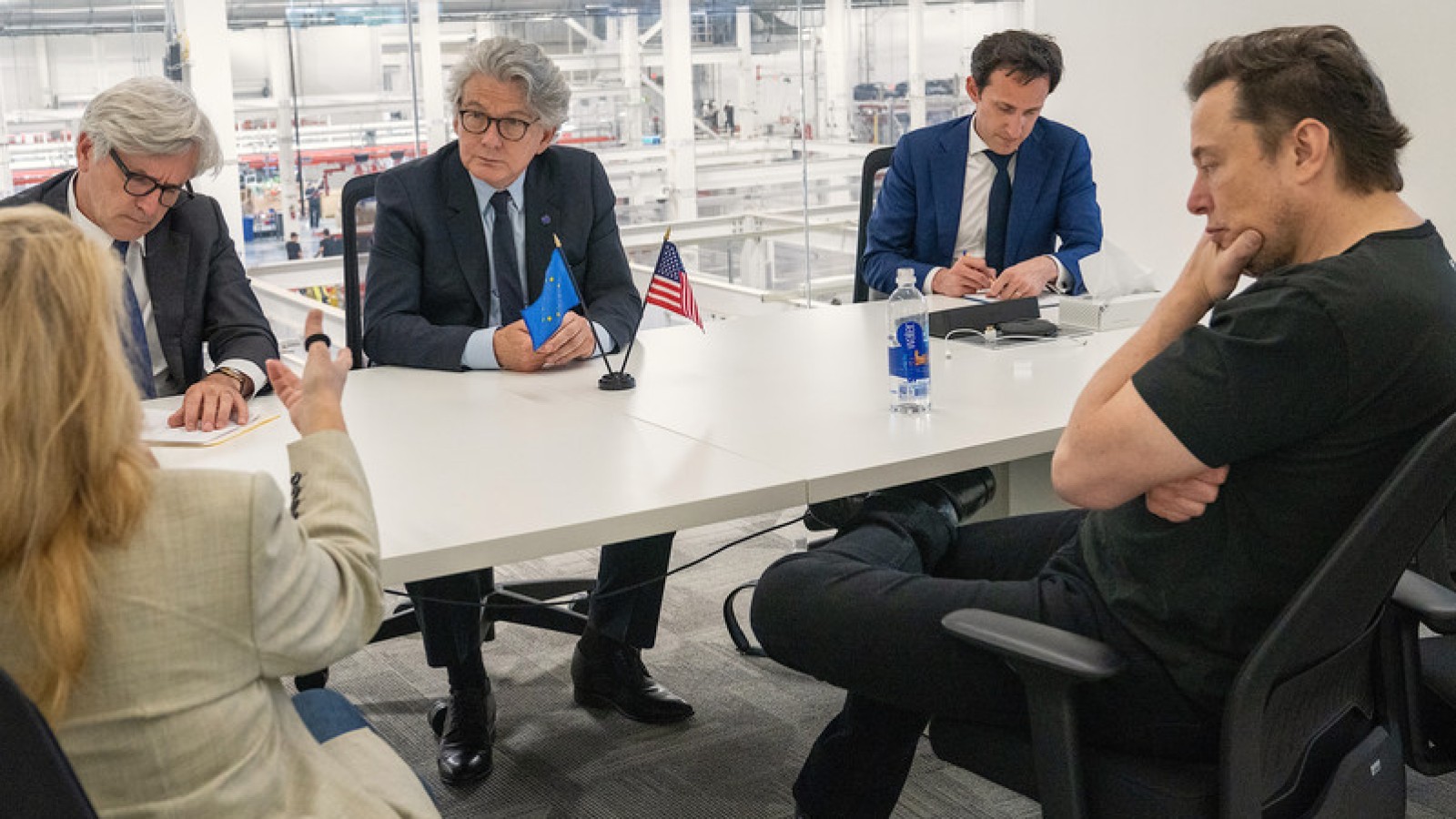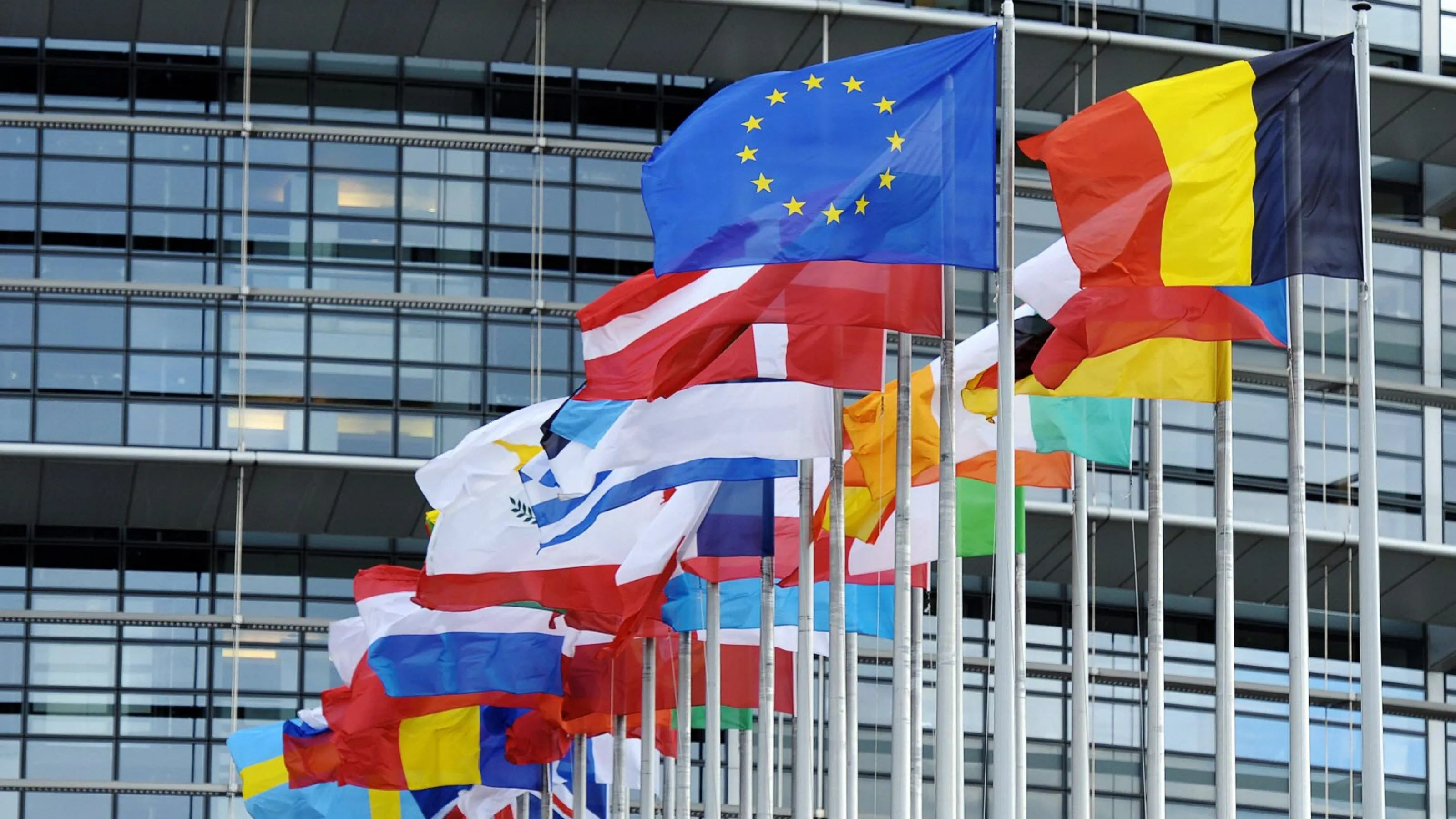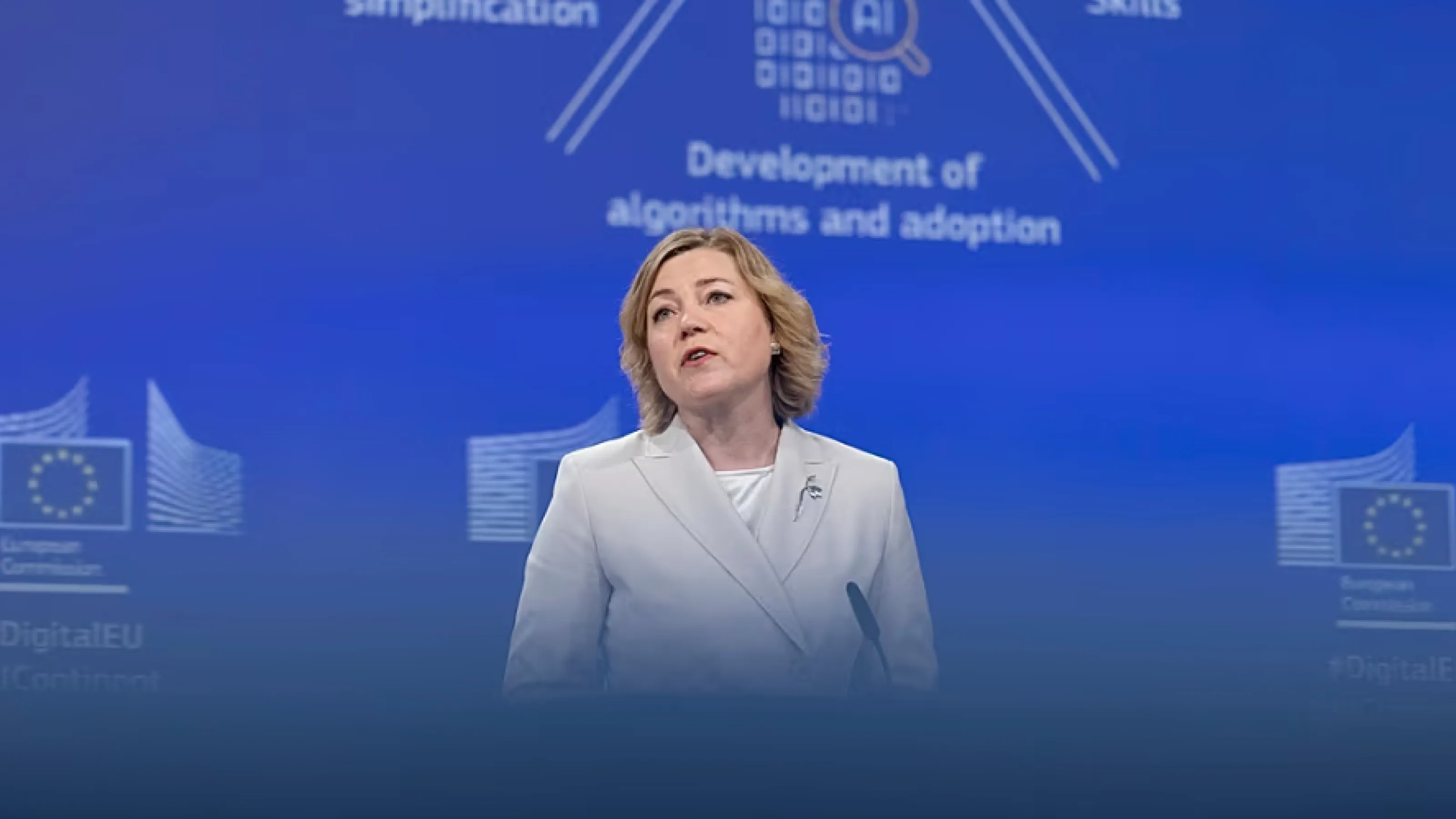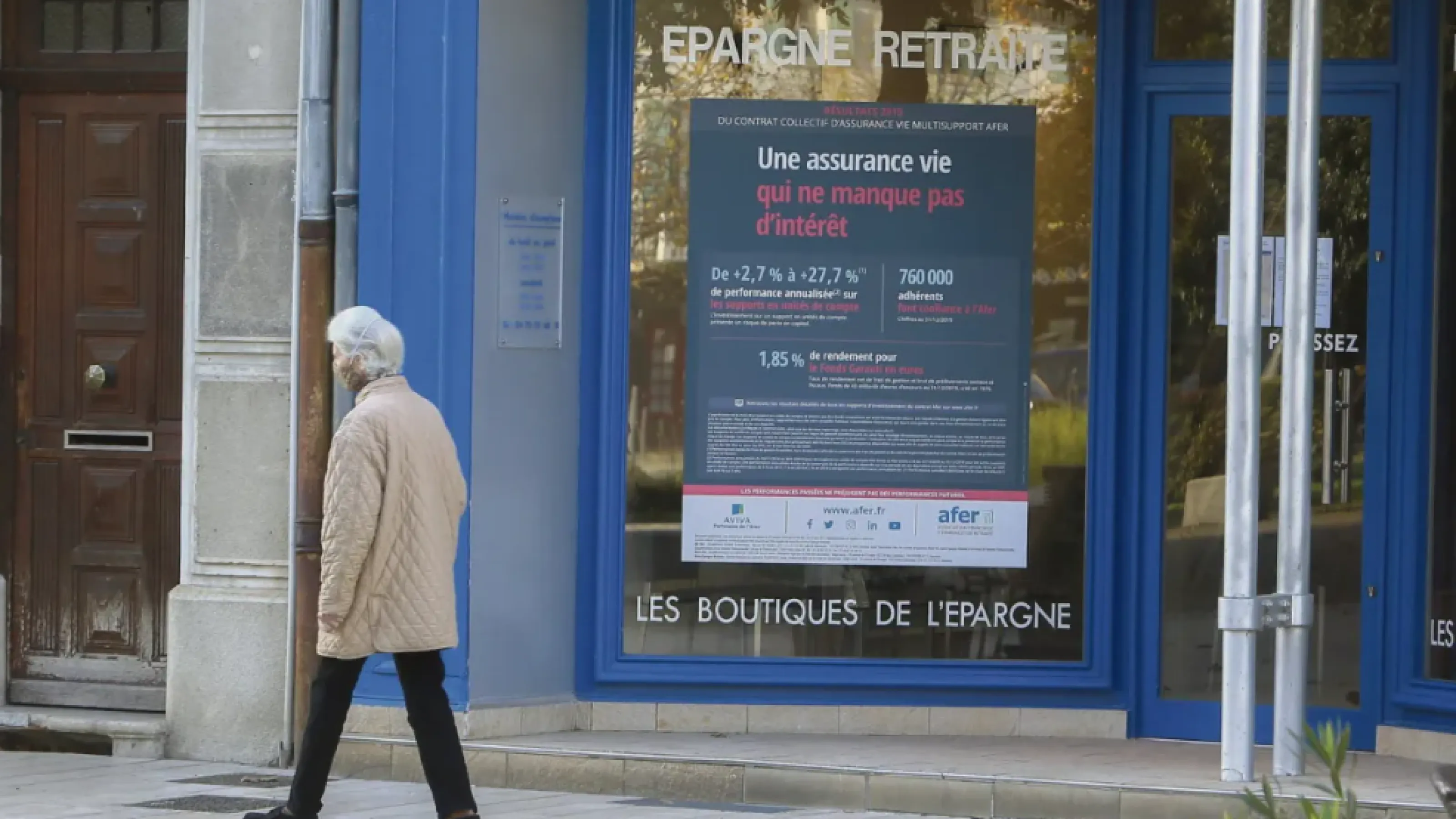Senior EU officials have called out US social-media baron Elon Musk for publishing antisemitic content — amid questions over the future of his X platform in Europe. "We're seeing a dramatic rise of antisemitic content on online platforms, X, formerly Twitter, seems particularly bad at stepping up to this challenge," said EU values commissioner Věra Jourová on Wednesday (18 October).
"We're sending a clear signal — things have changed in Europe," said Thierry Breton, the EU single-market commissioner.
"In the case of X, we've … sent a formal request for them to determine what they have done to comply with the DSA, and there are reasons for us to do that," he added.
The digital services act (DSA) is an EU law on curbing online hate and wider illegality that entered into life on 25 August.
The Gaza war has seen X and other online giants Alphabet (Google), Meta, TikTok, and YouTube deluged with hardline pro and anti-Israeli content, including graphic images and fake news.
It has also seen a spike in antisemitic incidents and two Islamist killings in Europe.
"The terrorist attacks in Arras in France, and in Brussels on Monday are a wake-up call — it shows us the threat [from online hate] is very real here in Europe," Breton said.
The EU commissioners were speaking to MEPs in Strasbourg, many of whom also laid into X.
In one egregious fake report on X, Israel was accused of having used a nuclear weapon in Gaza, noted Swedish socialist MEP Heléne Fritzon.
"The videos were fake but by the time this became clear the damage had already been done," she said.
In another fake report on X, Arabic media accused Palestinian group Hamas of bombing the Al-Ahli hospital in Gaza. French liberal MEP Stéphanie Yon-Courtin spoke out against the "unbearable tsunami of photos" and "calls to murder" on both sides of the war.
"The CEOs of Meta, X, YouTube — I'm talking to you," she said.
Dutch Green MEP Kim Van Sparrentaak said: "For citizens, this makes it almost impossible to follow this conflict and know who to trust".
The DSA gives Breton the power to fine X and other huge platforms up to six percent of global turnover or exclude them from the EU single market in a worst-case scenario.
Breton has also written to the CEOs of Alphabet, Meta, TikTok, and YouTube warning them on Gaza-war content.
But his detailed questionnaire to X, sent on 12 October, represented the first step in formal proceedings against any of the US and Chinese media leviathans.
Breton and Musk also butted heads on X personally on 10 October.
"You are well aware of your users' — and authorities'— reports on fake content and glorification of violence," Breton tweeted Musk. "Up to you to demonstrate that you walk the talk."
Musk snapped back: "No back room deals. Please post your concerns explicitly on this platform."
The multi-billionaire X chief has a history of impulsive decisions.
And he has discussed removing X from the EU or blocking EU users' access in light of the DSA threat, according to a source in the US news website Insider also on Wednesday.
But for all that, many MEPs in the Strasbourg debate urged Breton to wield his DSA sanctions.
"We can't wait until they [Big Tech CEOs] reply to our letters," said Van Sparrentaak, contrasting the speed of harmful viral content to EU procedure.
A minority spoke out against "EU censorship", echoing Musk's libertarian views.
The DSA was a "massive EU power-grab over public discourse", said Irish MEP Clare Daly of The Left.
But the European Commission, also on Wednesday, urged EU capitals to launch a legal purge on disinformation due to the "extraordinary circumstances".
EU states should fast-track the creation of new DSA regulators, who would work together in an "incident response mechanism" that would help take down illegal content more quickly, the commission said.
They should also force Big Tech firms to "draw up incident protocols" on how to handle security crises such as Gaza, it added.
"Hamas' terrorist attack [on Israel] has ... led to an online assault of heinous, illegal content promoting hatred and terror," said commission president Ursula von der Leyen in a statement on Wednesday.
 Stéphanie Yon-Courtin
Stéphanie Yon-Courtin
